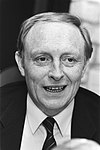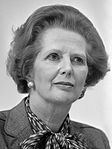This article relies largely or entirely on a single source. (April 2021) |
A general election was held in the United Kingdom on Thursday, 11 June 1987 and all 72 seats in Scotland were contested.[1]
| ||||||||||||||||||||||||||||||||||||||||||||||||||||||||||||||||||||||||||||||||||
All 72 Scottish seats to the House of Commons | ||||||||||||||||||||||||||||||||||||||||||||||||||||||||||||||||||||||||||||||||||
|---|---|---|---|---|---|---|---|---|---|---|---|---|---|---|---|---|---|---|---|---|---|---|---|---|---|---|---|---|---|---|---|---|---|---|---|---|---|---|---|---|---|---|---|---|---|---|---|---|---|---|---|---|---|---|---|---|---|---|---|---|---|---|---|---|---|---|---|---|---|---|---|---|---|---|---|---|---|---|---|---|---|---|
| Turnout | 75.1%, | |||||||||||||||||||||||||||||||||||||||||||||||||||||||||||||||||||||||||||||||||
| ||||||||||||||||||||||||||||||||||||||||||||||||||||||||||||||||||||||||||||||||||
 Results of the 1987 election in Scotland | ||||||||||||||||||||||||||||||||||||||||||||||||||||||||||||||||||||||||||||||||||
MPs
editResults
edit| Party | Seats | Seats change |
Votes | % | % change | |
|---|---|---|---|---|---|---|
| Labour | 50 | 9 | 1,258,132 | 42.4 | 7.3 | |
| Conservative | 10 | 11 | 713,081 | 24.0 | 4.4 | |
| Alliance | 9 | 1 | 570,053 | 19.2 | 5.3 | |
| SNP | 3 | 1 | 416,473 | 14.1 | 2.3 | |
| Other | 0 | 10,069 | 0.3 | |||
| Turnout: | 2,967,808 | 75.1 | 2.4 | |||
Votes summary
editIncumbents defeated
editOutcome
editWhile the Conservatives under Margaret Thatcher comfortably won a majority across the United Kingdom, the result saw the Conservatives suffer significant losses as their vote share declined significantly in what The Glasgow Herald called "the humiliation of the Tories north of the border." Labour, who as well as gaining seats from the Conservatives also took two from the SNP and one from the SDP, now had more MPs from Scotland than at any other point in the party's history, including holding every seat in Glasgow, while the Conservatives were reduced to their lowest number since the Second World War.[2] Several prominent Scottish Conservative MPs, including Peter Fraser, Sir Alex Fletcher and Michael Ancram lost their seats, while George Younger, then Secretary of State for Defence, only very narrowly held his Ayr constituency after a recount.[2][3] The Conservatives also had close results in Edinburgh West, where James Douglas-Hamilton's majority was reduced to 498 votes, and at Stirling where junior minister Michael Forsyth's majority fell from over 5,000 to 948 votes.[4] The SNP's leader Gordon Wilson and the former leader of the SDP Roy Jenkins, also lost their seats to Labour challengers.[3] Labour also took the Western Isles constituency from the SNP following the retirement of former SNP leader Donald Stewart, with the seat seeing an SNP to Labour swing of 19.6%. The SNP partially compensated for their losses by gaining three seats from the Conservatives, while the Conservatives also lost two seats to the Liberals.[5][6]
In reaction to the poor Conservative performance compared with England, Scottish Secretary, Malcolm Rifkind, said "Of course I am disappointed. We have done well in the south, but not so well in Scotland." He noted that the recession had "bitten deeper" in Scotland than in England and that recovery had been slower.[2] The defeated Sir Alex Fletcher stated that "There is no Tory press in Scotland. The papers up here are rather hostile to the Tory Party".[3]
An editorial in The Glasgow Herald the day after the election argued that the results meant that "the case in favour of devolution is automatically strengthened", while also observing that the "patchy showing" by the SNP showed "that there is no general inclination for separatism".[7]
References
edit- ^ "Commons results report" (PDF). Archived (PDF) from the original on 23 October 2020.
- ^ a b c Parkhouse, Geoffrey (12 June 1987). "Scotland swims against the Tory tide". The Glasgow Herald. p. 1. Retrieved 26 April 2021.
- ^ a b c Clark, William (12 June 1987). "Labour gains raise the Doomsday issue". The Glasgow Herald. p. 1. Retrieved 26 April 2021.
- ^ The Times Guide to the House of Commons June 1987. London: Times Books Ltd. 1987. pp. 108 & 212. ISBN 0-7230-0298-3.
- ^ The Times Guide to the House of Commons June 1987. London: Times Books Ltd. 1987. p. 238. ISBN 0-7230-0298-3.
- ^ David Butler; Robert Waller (1987). "Survey of the voting. Election of haves and have-nots". The Times Guide to the House of Commons June 1987. London: Times Books Ltd. p. 255. ISBN 0-7230-0298-3.
- ^ "Divided kingdom". The Glasgow Herald. 12 June 1987. p. 12. Retrieved 28 April 2021.


